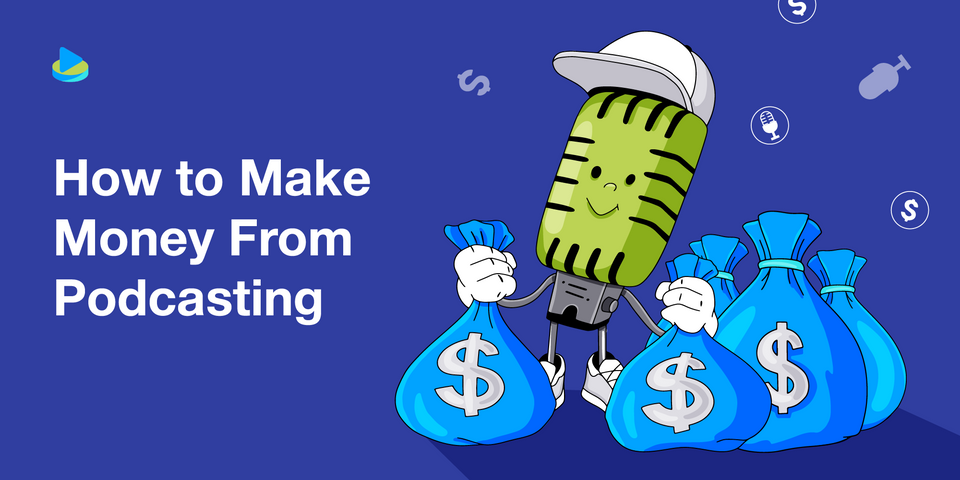Podcast monetization. It's a dream for some podcasters, yet it seems impossible for others. But can it really be done? Yes, absolutely!
First, clarify the role your podcast will play. Do you want to make money directly from your podcast, or is it a marketing funnel that sends potential clients to your other offerings? You might well aim for both options.
Either way, we've put together a giant list of ways you can make money podcasting once you've established an audience.
How realistic is it to make money from podcasting?
You can make money with a podcast, but let's be honest. Earning more than a few dollars here and there takes heaps of work and some smart monetization strategies.
Most podcasters don't make a significant amount of money right away. Many don't make any money at all because their shows are passion projects or because they underestimate how much time it takes to create a successful podcast.
It also depends on your industry or niche. Some are easier to monetize than others. According to The Independent Podcast Network, the most profitable niches include Business and Finance, Technology, Health and fitness, Personal development, Relationships, Marketing and sales, Travel, Education, Entertainment and News/current events.
However, podcasting in another niche doesn't mean you can't monetize. The good news is that you can make a significant amount of money podcasting if you use some of the strategies below to build multiple revenue streams.
When should you start thinking about monetizing your podcast?
It takes time to build an audience and establish relationships with advertisers or sponsors.
Success in podcasting requires consistency, quality content, effective marketing, and a deep understanding of your target audience.
You may have a goal to monetize a podcast right from the start. That doesn't mean you'll make money right away, but it does mean you should treat it like a business from day one. Choose a suitable niche and consider monetization strategies when planning every aspect of your podcast, including the title, cover art, format and content. You'll then be set up to start monetizing once you've built an engaged audience.
Of course, many podcasters don't start with monetization in mind. These hosts eventually realize they've built a loyal audience and have credibility in their niche and then turn their attention to making money.
Ways to make money from podcasting
Podcasts make money in two broad ways. They may employ direct monetization methods, such as advertising, or indirect methods, such as using their podcasts to build relationships and establish expertise, which in turn leads the audience to seek out their products or services.
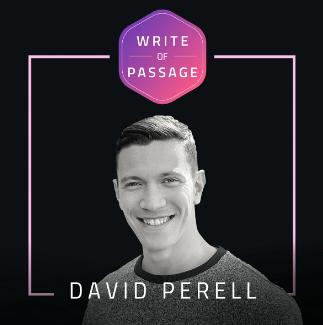
Direct monetization methods
1. Sponsorships and Advertisements
Podcast ads are the first thing you might think of to make money. They're the obvious choice for many podcasters, although, as you'll see, there are many other ways to monetize a podcast, too. Here are some things to consider when planning your podcast ads.
Negotiate direct deals with brands related to your podcast niche. This is an obvious way to attract sponsorship deals. For example, if you've built a successful podcast about ultra marathon running, then it makes sense to reach out to footwear or sports brands in the long distance running space. You might go further afield and reach out to related industries like sports psychiatrists, nutrition or health and wellbeing companies.
Create sponsored content or branded episodes. Dedicating a whole episode or a content segment to a brand you've partnered with can be a valuable way to showcase them and make more money for you.
Include native advertising that integrates seamlessly into your content. Native advertising, aka host-read ads, can be a good way of adding value for your audience if you partner with advertisers or sponsors that have something of real benefit to their business or health.
Offer tiered sponsorship packages (e.g., gold, silver, bronze) with different levels of exposure.
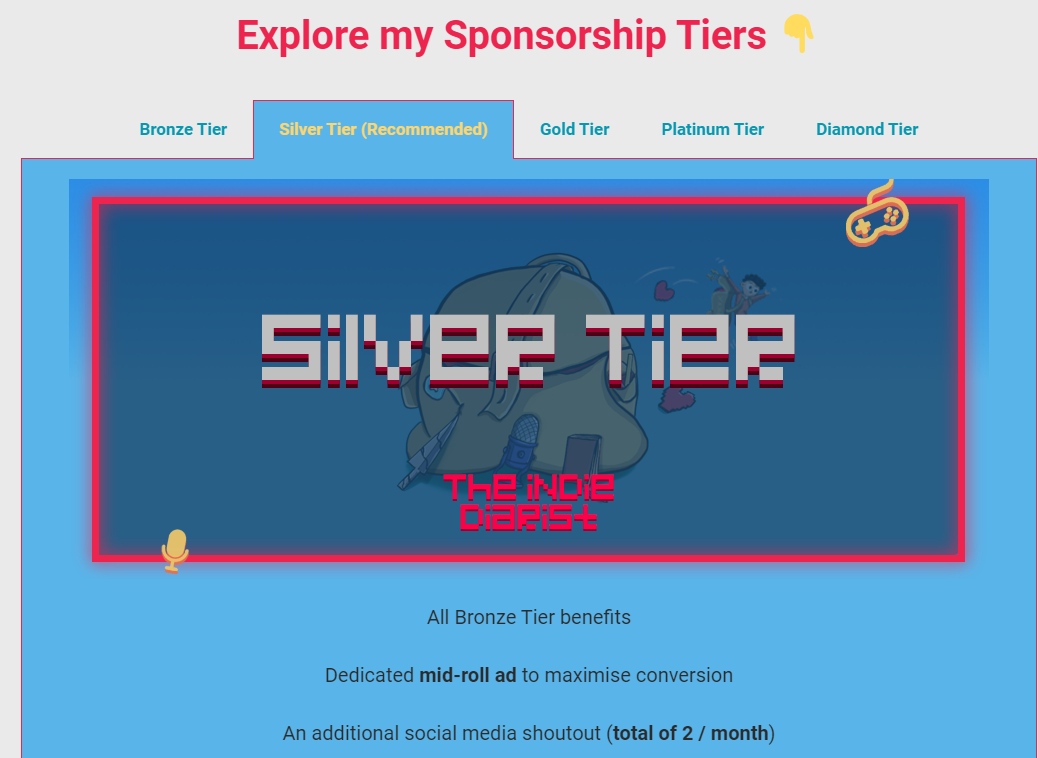
Offer product placements or mentions within episodes. Again, work with brands that have direct relevance to your audience. If you're new to advertising, check out our complete guide on how to advertise on podcasts.
Implement dynamic ad insertion for timely and relevant ads.
Host live reads or personal endorsements of products. This article includes five excellent examples of host-read advertising in podcast episodes. Personal endorsements can work well, especially when the host demonstrates that they really do use and love the product.
Partner with local businesses for community-based sponsorships. Most successful podcasts are widely distributed, but if your podcast audience is based in one country, or one area partnering with the locals can make a lot of sense. You can sell ads and also use it as a public relations opportunity by donating some of your profits to a relevant community charity.
Use programmatic advertising for automated ad placements. Programmatic advertising is a method of buying and selling digital advertising space using automated technology. It can allow for specific targeting of the advertisers ideal audience and often employs real-time bidding. This allows advertisers to bid on ad impressions as they become available. The highest bid typically wins the placement, and the ad is displayed almost instantly. Learn more about programmatic advertising.
Use podcast advertising networks to connect with potential sponsors. Many shows band together as podcast networks to attract advertisers and podcast sponsorships. Smaller networks may be based around a niche or genre (e.g., comedy. sports). Gigantic networks include iHeart radio and Sirius XM. Check out our Complete Guide to Podcast Networks to learn more.
2. Affiliate Marketing
Affiliate sales happen when businesses pay partners (affiliates) for promoting their products or services. The affiliates earn money whenever someone makes a purchase through their unique referral links. Affiliates have often used the product or service themselves and can therefore recommend it from personal experience.
Here are a few ways to use affiliate marketing in podcasts.
Promote products/services. Collaborate with affiliate partners for exclusive listener discounts and include affiliate links in your show notes.

Do product reviews. Mention your affiliate link during the podcast and again, include it in your show notes. If you publish podcast episodes on YouTube, include the affiliate link there too.
Use affiliate marketing platforms to find products that match your audience.
Shopify says, "An affiliate network is a service that connects publishers (affiliate marketers who publish on platforms like blogs and social media) with brands. The network acts as the “middleman,” so that both publishers and brands offering affiliate marketing programs can find each other easily"
Integrate affiliate products into storytelling or content. You might also create themed episodes around affiliate products or services. For example, if you're a mediation podcast or a health podcast and record an episode or mini-series about sleep, you might discuss mattresses, pyjamas, sleep aids, supplements etc. and negotiate affiliate links with the appropriate brands.
Highlight affiliate products in email newsletters or social media. It almost goes without saying (and yet I'm saying it anyway.) Include your affiliate links when you send out a newsletter or promote an episode on social media, especially if they include a giveaway.
Offer bonus content or resources tied to affiliate products.
For example, Amy Porterfield (Online Marketing Made Easy) is a master of offering bonus or exclusive content to promote her guests.

Podcast episode transcripts are another place to include affiliate links. Many podcasts publish transcripts on their website while others write blog posts based on the episode. Either way, these create perfect opportunities to gather more affiliate sales—sometimes from readers who haven't even listened to the podcast.
Organize contests or giveaways. Who doesn't like to win free stuff? Including contests can really hook listeners into your show and offering affiliate products as prizes is a great way to promote the product. Hopefully, the winner will love using the product, so keep in touch with them afterwards and get an authentic testimonial to use in future promotions.
3. Subscription Models
Another way to generate podcast revenue is to keep some of your content behind a paywall.
Most podcasts are available free on all the podcast apps. It makes sense to keep at least some of your content free to all because it helps you build an audience and show the value of your content. However, a subset of your podcast listeners may be willing to pay a subscription, first because they receive something extra and secondly to support your work because they want it to continue.
Many podcast platforms include ways to set up paid membership tiers. These include major players like Apple podcasts (here's an overview) and Spotify, as well as Stitcher and Pushkin. Substack also includes podcasts and makes it easy to set up a paid subscription model.
Here are some ways to make podcast subscriptions attractive to supportive listeners. Consider bundling some of these to create an attractive offer.
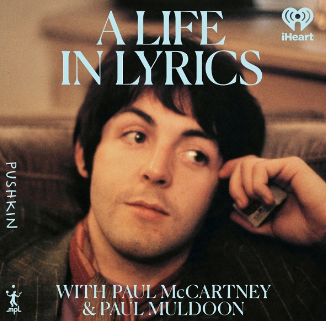
Offer ad-free versions of episodes to subscribers. Some listeners don't mind listening to adverts, but others would gladly pay a little to avoid them.
Create exclusive content or episodes for subscribers. I can't deny that it takes extra time and work to make bonus episodes and hide them behind a paywall. However, if your listeners find your content valuable, some will absolutely pay to get more.
Provide early access to new episodes, for subscribers.
Offer subscriber-only Q&A sessions, community access and behind-the-scenes content. Extra content from educational podcasts, for example, might be very attractive to a dedicated audience.
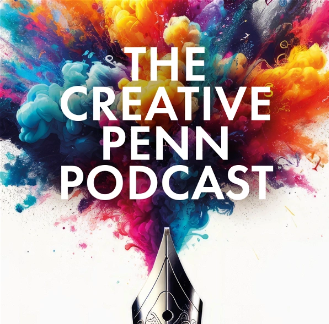
Implement tiered subscription levels with varying benefits. One way to combine these benefits is to create paid membership tiers where subscribers pay more money to access more benefits. The bronze could be free to air and include podcast ads and less content. The silver level might be a few dollars a month for to make the podcast ad free. Your gold tier could be ad-free and include exclusive content with access to a community and so on.
Create a private podcast feed for subscribers. One way to create premium content for members only is to hide it behind a private podcast feed. Some podcast hosting companies offer the ability to make private podcasts or you may be able to set up a subscription service on your website. Learn more about private or internal podcasts.
Another way to offer more value is to bundle a subscription with other products/services (e.g., merchandise). You might also promote seasonal or early-bird offers or discounts on your products/services to your subscribers, although you may get some people subscribing to get the discount and unsubscribing the next month.
4. Crowdfunding
Crowdfunding is "the practice of funding a project or venture by raising money from a large number of people who each contribute a relatively small amount, typically via the internet." (Oxford Dictionary). And as costs rise it's become a viable way to fund one-off projects (e.g. publishing a book) and as a way to fund continuing projects like your favorite podcast. Here are some options.
Launch a Kickstarter or Indiegogo campaign for special projects. Kickstarter concentrates on crowdfunding for creative projects while Indiegogo includes a wider range including tech, not-for-profits and more. https://www.kickstarter.com/
As with most things, a lot of work goes into running a successful campaign. It's best to build a community before you start a campaign because if you don't reach your target, all pledges are canceled.
Use Patreon for ongoing support and offer patron-only content. Patreon was founded with creatives in mind as a way for supporters to help fund creatives they admire or see value in. Their categories include podcasters, video creators, musicians, artists and game developers.
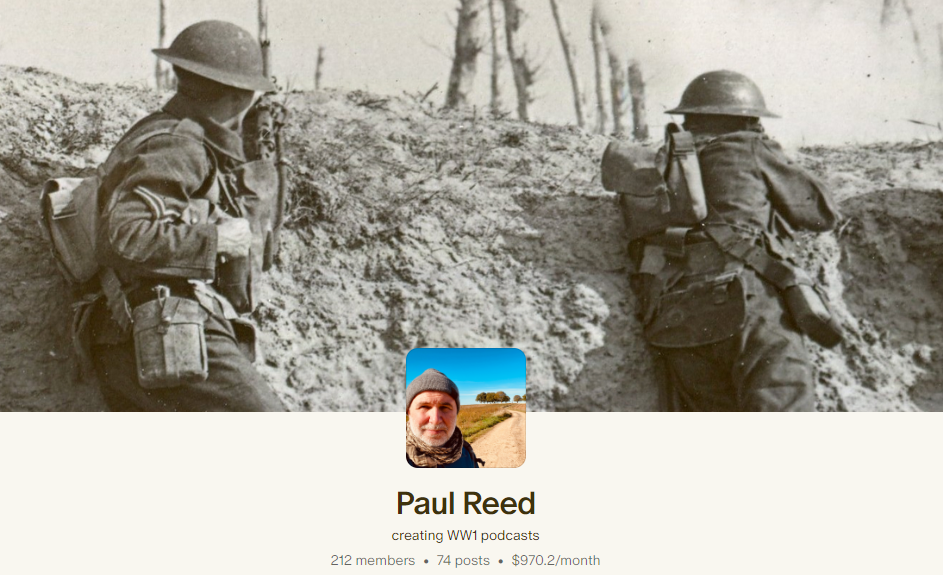
Offer unique rewards or experiences for different funding levels.
Create a crowdfunding campaign for specific episodes or series. If you have a special series in mind which would greatly benefit your community, it could be worth asking them for support.
Use crowdfunding for charitable causes or social impact initiatives. Live crowdfunding events or telethons can work particularly well if the money is going to a charitable cause rather funding your podcasting costs.
Offer naming rights or acknowledgments in episodes to your backers in the same way as building projects may offer named bricks or plaques or authors offer to name a character after a big sponsor or competition winner. It can be a powerful way to acknowledge your most ardent supporters.

Create a community goal that, once reached, unlocks benefits for all. For example, if you've written a book, you might include an extra e-book if the pledged funding exceeds your target. You can also offer physical merchandise or memorabilia as part of your crowdfunding rewards.
Provide exclusive updates or previews to backers. Keep your backers updated with exclusive content so they know how your project is progressing and feel connected and appreciated.
5. Donations
Sometimes fans of your podcast just want to show their support and help to keep your content coming without expecting anything in return. One-off donations can be a small but easy way to make money podcasting.
Make it possible for them to donate by setting up a “Support Us” button on your podcast website. Mention the donation option in your episodes and direct listeners to your website.
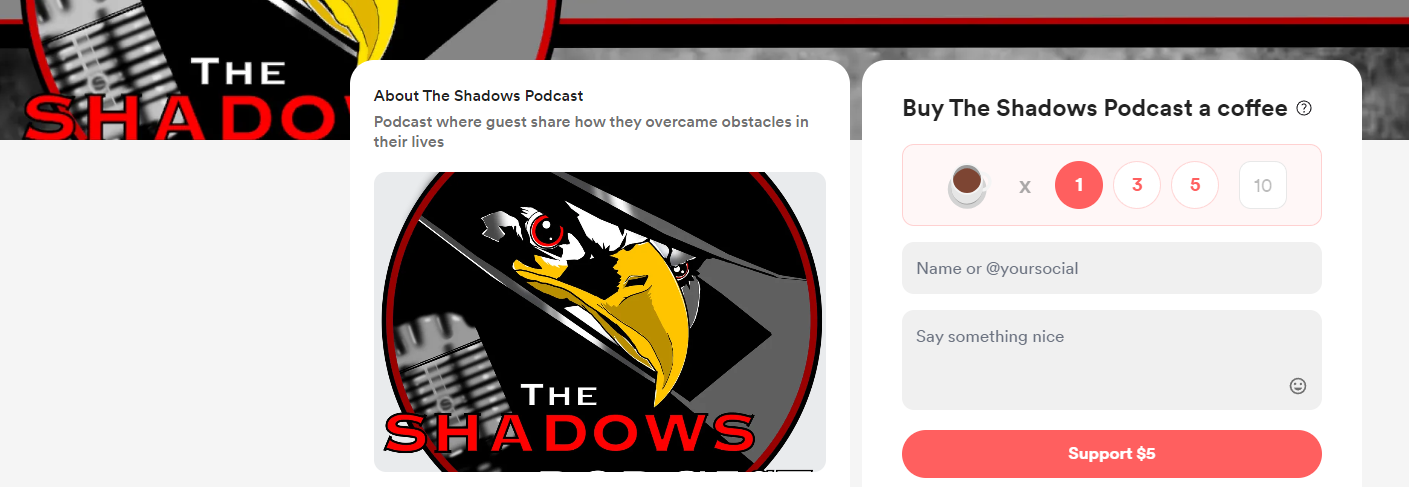
Incentives like special mentions or shoutouts in episodes for donors may also encourage people to donate. You might also provide exclusive access or special content to donors.
Other donation funding ideas include organizing fundraising drives or donation-matching campaigns or implementing a pay-what-you-want model for episode downloads and donation-based access to archived or special episodes.
Use social media platforms to facilitate and promote donations for your podcast.
6. Syndication
Your podcast lives on a website, usually provided by a podcast hosting service such as Castos, Libsyn, Transistor or Podbean and distribute to Apple Podcast and other apps through your podcast's RSS feed. Your podcast host should automatically supply an RSS feed because nobody will find your show if you don't have one.
You can also syndicate your show to YouTube and include ads for extra income. Some popular shows even syndicate to radio networks through companies like PRX and make money through royalties.
Indirect monetization methods
1. Merchandising
Selling merchandise or "merch" is a popular way to make money through listener support. Successful podcasts often build a strong community around them and having branded merchandise is one way to keep the community feel going (and make money at the same time.)

You might sell branded apparel like t-shirts, hats, and hoodies. You might set up your own store on Shopify or Etsy, or use a dedicated podcast merch store like Exactly Right. You might offer custom merchandise like posters, stickers or puzzles or go all out and design your own line with Pietra.
It can be tricky to know how much merch to order, especially when you're starting out. The last thing you want is a whole lot of unsold items sitting in a warehouse (or taking up space in your back room.) Avoid those problems by using print-on-demand services.
Everyone likes to get a good deal so consider offering merchandise bundles with exclusive items. Your fans will love them and feel like they're getting a bargain at the same time.
Collaborate with artists or designers for unique merchandise designs.
Sell signed merchandise or collectibles.
Are you celebrating your 100th episode? 1 million downloads? A live show? Celebrate that special event or milestone by creating limited-edition merch.
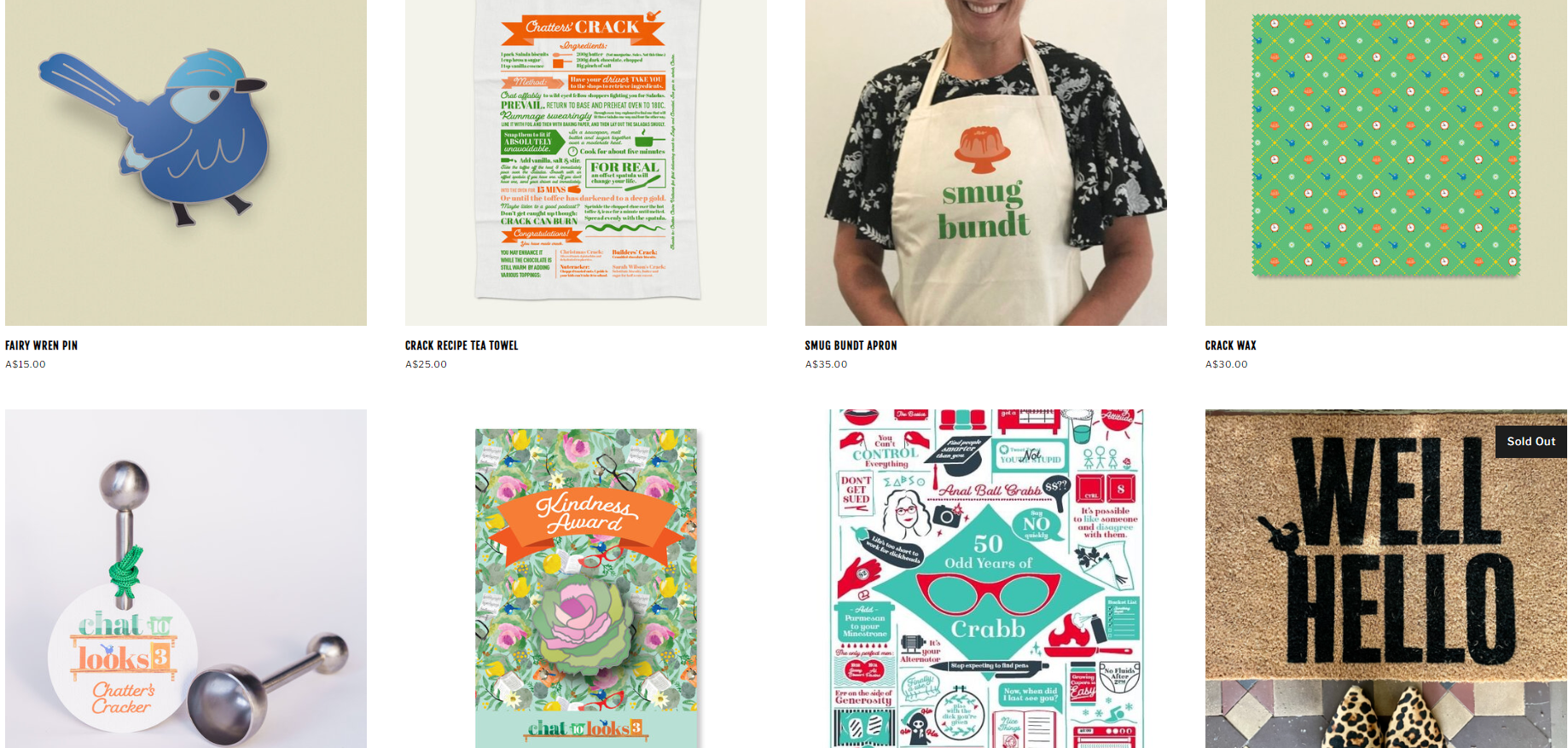
Create seasonal or themed merchandise collections. Obvious themes include Christmas, Easter, Anniversaries, 4th of July, St Valentine's Day, Diwali, Hannukah and so on.
Or be a little more innovative and find one or more international days or weeks dedicated to causes that dovetail with your podcast. For example, International Women's Day (9th March), Random Acts of Kindness Day (17th February), World Environment Day (5th June), World Teachers' Day (5th October), International Mountain Day (11th December) and so on.
Promote your collections and encourage podcast listeners to subscribe by offering merchandise discounts to subscribers or members. and use your merch as rewards for crowdfunding or other substantial support.
2. Consulting and Coaching
Consider starting your own podcast to showcase your expertise and attract clients. Hearing your voice and listening to your podcast content helps people get to know you and your style. If your content hits the mark, you'll inevitable drive potential clients to your website and services.
Numbers aren't everything, so it doesn't matter how many downloads you get, so long as you target the right audience. Here are some of the ways creators monetize their podcasts through coaching or consulting.
Offer one-on-one consulting or coaching services related to your podcast's niche.
If your podcast offers a ton of value as a teaching or coaching podcast you'll probably find people reach out to you for help even if you don't advertise coaching services. So, why not do it intentionally? They could be full-on intensive courses or shorter, personalized feedback or advice sessions. You might also offer exclusive content or resources as part of consulting services.
One-on-one coaching is usually expensive because it's very hard to scale. Group coaching sessions or workshops can be a more affordable option and are easier to scale up. These could be in-person if your clients are local or online if they're scattered around the globe.
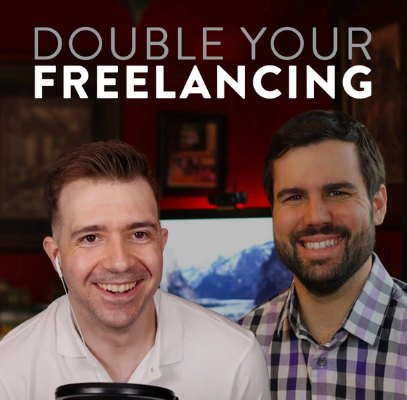
Online webinars or seminars are another affordable option podcast listeners. Time-wise they may also be easier for you to manage because you can record and edit them in advance. Once recorded, you can use snippets on social media, repurpose parts on your blog or on online courses, and even run them again later in the year.
Advertise them on podcast episodes leading up to the event and consider offering them free or heavily discounted to your paid community.
Create a membership program for ongoing consulting support or create a consulting package for businesses or individuals.
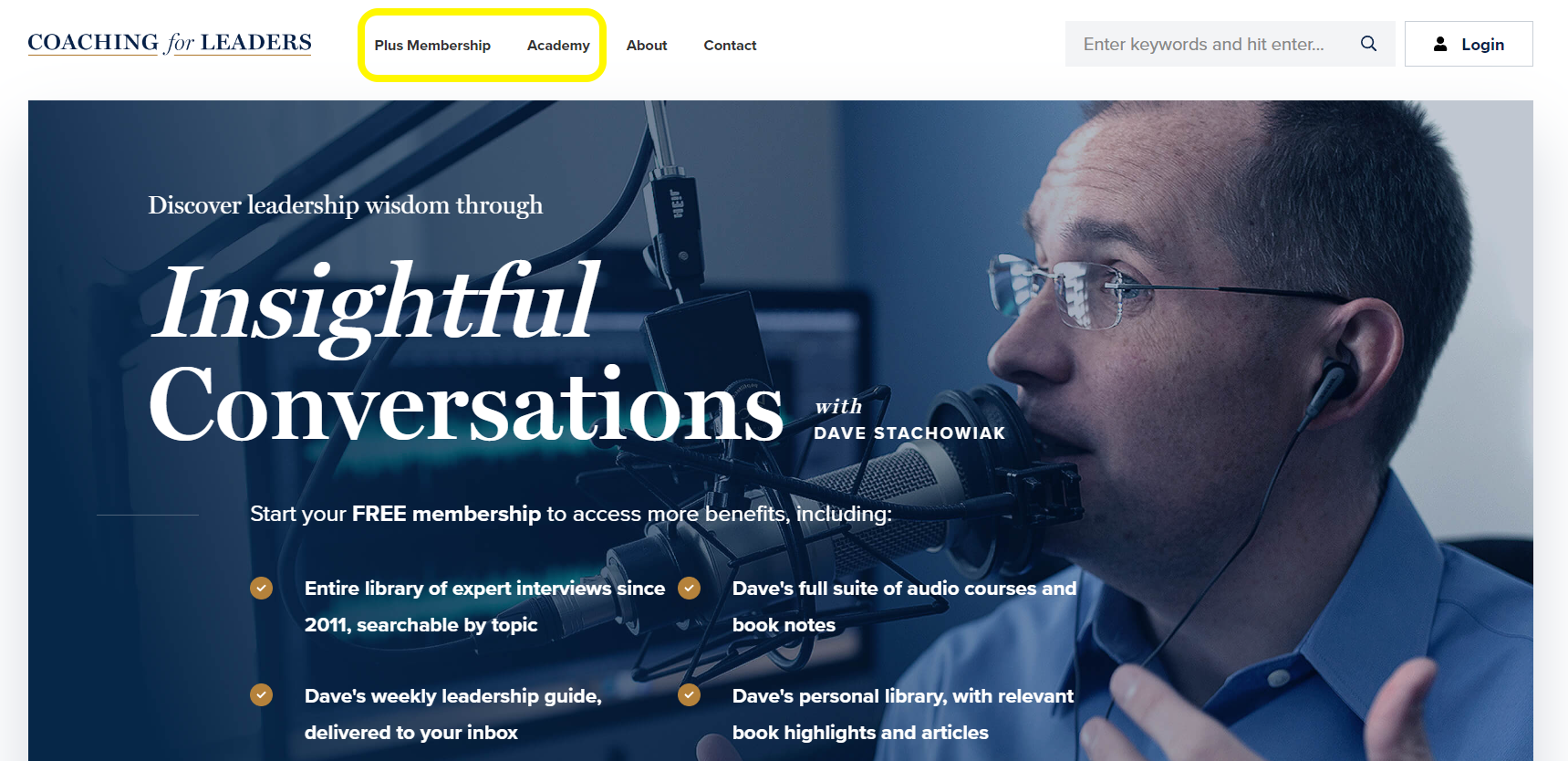
3. Events and Workshops
Building an enthusiastic audience around your own podcast gives you the chance to offer all sorts of events. You might go it alone or partner with other podcasts or speakers for joint events.
Host live podcast recordings with paid entry or join other podcast hosts in a gala festival. This works particularly well if your podcast is funny. You'll find all sorts of comedy podcasts make money through live events and record them as podcast episodes. Music podcasts can also make money by taping live, as in this example from Song Exploder.

Many hosts organize workshops or seminars or even virtual summits related to their podcast content or niche. Education, arts, health and well-being, entrepreneur and business podcasts all make money through offering live events, workshops and seminars that expand on their content. These podcasts are often part of a wider business and are used as discovery platforms which then drive customers to the events.
Examples include the Self Publishing Show Live (a two-day live event for the indie author community, which includes a digital ticket to all the speakers for those who can't attend in person.) She Podcasts Live (a 3-day event about women succeeding in the podcasting business from She Podcasts and Libsyn) and the Stop the Menopause Madness, a virtual health summit hosted by Kyrin Dunstan (podcast host at The Hormone Prescription.)
Create networking events or meetups for listeners. Networking can play a big part in building a successful brand. Again, these events might be live and in-person or online video calls. They can also happen as part of a bigger event like an industry conference where you might put the word out that you'll host a meet up for any of your paid subscribers at the event.
Organize retreats or destination events related to your niche.
Many new and experienced creators will pay to get together with their peers in a great location. One example comes from Creator Empires. As Creator Smarts they built a small but highly engaged podcast audience of YouTubers in the language education space and now offer sell-out mastermind retreats in southern Europe and shorter two-day workshops in the UK.
4. Courses
Many podcasts make money through selling online courses and books. If you teach something through your podcast, consider creating a course to satisfy those who want to learn more information or techniques. Usually, the podcasts are part of a brand and act as a marketing "top of funnel" step, attracting potential customers and leading them to the business's marketing funnel.
Examples include:
- The I Want to Know podcast where Josh Spector demonstrates his coaching style by answering client questions on the podcast and sends business, marketing, newsletter creators and entrepreneurial clients to his paid Skill Sessions.
- Rachel Miller's Candid Comms podcast has an audience of corporate professionals and sends interested listeners towards her Internal Communications Strategy book.
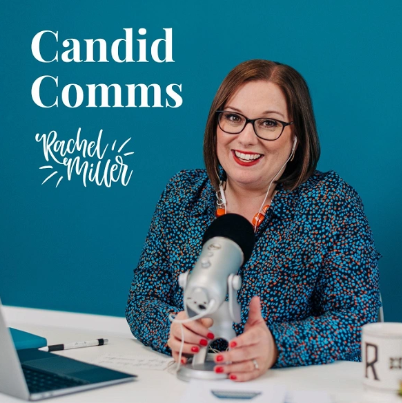
Final words
We promised you a massive list on how to monetize a podcast and we've delivered! You have so many strategies and examples to consider.
How do we research our examples? Of course, we use Rephonic. Why don't you try it too?
Use Rephonic's clever 3D graph tool and do a deep dive into podcast research.

